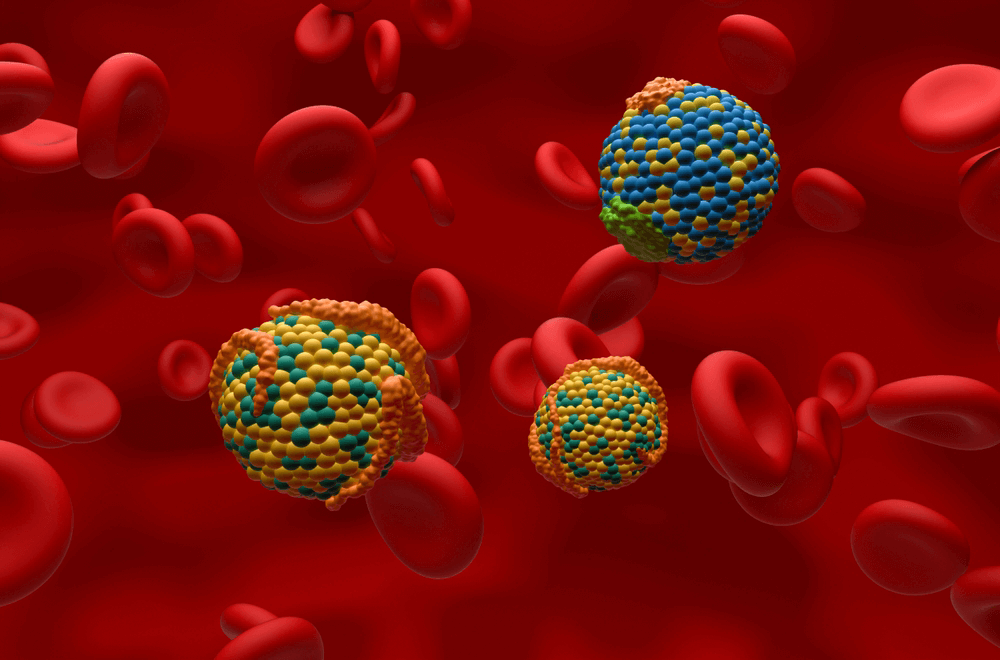The Hidden Hazard to Heart Health: Lipoprotein(a) (Lp(a))
Lipoprotein(a), affectionately called lipoprotein “little-a” or Lp(a), is a lesser-known yet profoundly influential factor in our cardiovascular health. But what is it, and why is it so important?
“Lp(a) is more important than your LDL or HDL metric. Elevated Lp(a) drastically increases your risk of atherosclerosis and cardiovascular disease.”
Dr. Alex Brothers, family physician expert in longevity science and core member of the Tall Tree Longevity Medicine team
All About Lipoproteins
Before we get into Lp(a), you should know that lipoproteins are particles made of fat (lipids) and proteins. Historically, we have called our lipoproteins either good (high-density lipoprotein or HDL) or bad (low-density lipoprotein or LDL). But that doesn’t tell the whole story. These two groups both carry the exact same molecule– cholesterol. However, their actions are very different.
The low-density lipoproteins are responsible for moving lipids, such as cholesterol, around the body, and the high-density particles (HDL) move cholesterol in the reverse direction, back to the liver so it can be expelled. When the number of low density lipoproteins in the bloodstream accumulates, this leads to cholesterol buildup in the arteries, beginning the cascade of cardiovascular disease. Lp(a) is a type of low-density lipoprotein.
Lp(a) has a size irregularity that causes it to circulate in our body at high concentrations for longer periods of time than other particles. Our liver’s receptors, responsible for clearing out lipoprotein particles, don’t recognize Lp(a) as efficiently. Unfortunately, this circulation of Lp(a) at higher concentrations for a longer period of time puts us at a greater risk of developing cardiovascular disease.
High levels of Lp(a) - think more than 100 nanomoles (nmol) per liter (L) - have been recognized as a significant risk factor for several cardiovascular conditions, including aortic stenosis, coronary artery disease, peripheral vascular disease, stroke, and even unprovoked pulmonary embolism. Quite the perfect storm.
The Triple Threat
Lp(a) has three attributes, which make it a triple threat to our hearts. It is atherogenic (plaque forming), thrombogenic (clot forming), and osteoblastic (causing calcification).
This is like having a supervillain causing chaos in your circulatory system, gradually making your arteries narrower, blood clots more likely, and promoting unwanted calcification, which can result in reduced blood flow.
Unlike cholesterol levels, which can be impacted by diet, exercise, and other lifestyle choices, Lp(a) is genetically determined. Some people may be more prone to high Lp(a) levels, which put them at a higher risk of heart disease at a younger age.
“This is like having a supervillain causing chaos in your circulatory system, gradually making your arteries narrower, blood clots more likely, and promoting unwanted calcification, which can result in reduced blood flow.”
Testing for Lp(a)
Surprisingly and despite its significant role in heart health, most physicians don’t routinely test for Lp(a). Recent research findings suggest that everyone should have their Lp(a) levels tested at least once in their lifetime — ideally in early adulthood - and particularly if someone in your family has high Lp(a). It's like checking the foundations of your house – even if everything seems fine, it’s better to know if there’s an issue.
At this point you’re probably wondering how you can get your Lp(a) checked. Sadly, current medicine (medicine 2.0), which is focused primarily on diagnosing and treating illness only tests Lp(a) if there is a strong family history of abnormally high lipids (Familial hypercholesterolemia) or once you have a heart attack. For medicine 3.0, the next evolution of healthcare which seeks to proactively prevent disease, this will require paying to get it tested. There are a number of vendors to get this done at, but in Canada our go-to provider for comprehensive metrics is Healthspan Labs. The test is easy– a simple blood draw performed by a trained phlebotomist (someone who takes blood. Think kind and caring vampire). That blood sample is then sent off to a laboratory to be analyzed.
“Surprisingly and despite its significant role in heart health, most physicians don’t routinely test for Lp(a). ”
Prevention
Now, the big question is, what can we do if our Lp(a) levels are high? Currently, there's no medical treatment to significantly lower Lp(a), although a small subset of people may respond to statin therapy, Niacin, and PCSK-9 inhibitors like Repatha. But don't lose heart! Promising medications called Antisense Oligonucleotides (ASOs) are currently being tested in clinical trials and may offer future clinical solutions.
If you find out that you have high Lp(a), a proactive and aggressive approach to preventing cardiovascular disease is crucial. This means managing your cholesterol levels, controlling blood pressure, and tackling insulin resistance head-on through lifestyle strategies like healthy eating, exercise, and stress reduction.
Understanding and monitoring Lp(a) is vital for our heart health and longevity. It’s a silent contributor that can cause significant damage if left unchecked. A proactive approach will help ensure your heart continues to beat soundly for years to come.
Evan Carey & Dr. Alex Brothers
¹ https://www.ncbi.nlm.nih.gov/pmc/articles/PMC5962737/
² https://medlineplus.gov/lab-tests/lipoprotein-a-blood-test/
³ https://www.sciencedirect.com/science/article/abs/pii/S0828282X21001653
⁴ https://www.cdc.gov/genomics/disease/lipoprotein_a.htm#:~:text=Lp(a)%20levels%20cannot%20be,coronary%20or%20
other%20artery%20disease.
⁵ https://health.ucdavis.edu/news/headlines/lipoproteina-a-less-understood-but-critical-risk-factor-for-heart-disease/2023/02























